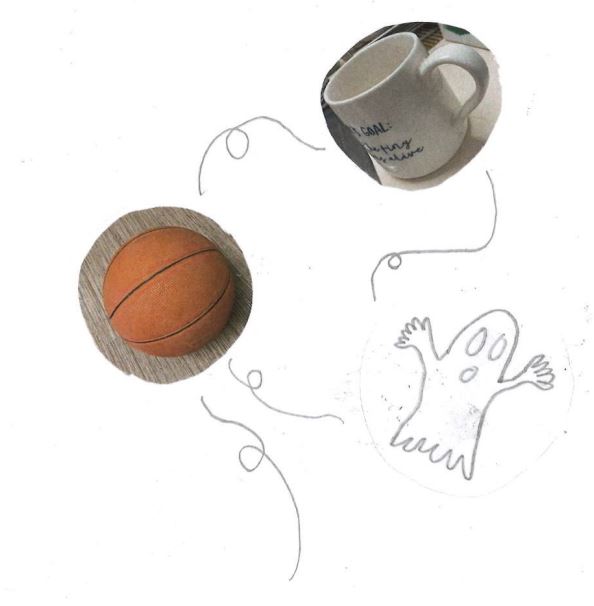Teacher Appreciation Week is usually a week filled with cards, flowers, candy, and lots of good food. Although it may not always show, we really love our teachers. Teachers help parents guide their children through the ups and downs of childhood. Teachers provide a level of stability and impart values that build strong community leaders. We all know this and after a while, it becomes easy for organic acts of gratitude to become ritualistic and habitual. So, let’s take a moment to reflect on the contributions that Teachers make to society and why we really should appreciate them.
Teachers Make Passive and Active Contributions to Our Economy
In addition to generating income and paying taxes, teachers educate our youth. This is obvious, yet we often do not understand how important that is. An educated youth is an indicator of a society that is moving forward in development. This is true of society regardless of when it occurred in history. It is also an important indicator of a strong society. Effective teachers bring forth effective students which creates an effective society.
COVID has definitely had a negative lasting effect on the educational outcomes of our youth. In addition to that, schools continue to be faced with funding and teacher shortages. Regardless of the reason, the US is not measuring as a leading academic achiever on a global level. We need our teachers now more than ever, and they are becoming harder to find. Teachers are leaving for all the reasons we already know: burnout, underpaid, overworked, safety concerns, understaffed, and underappreciated. In addition to this, some leave simply because it’s time. They are ready to retire, they are ready to start a new chapter in their lives, they are just…ready.
All of these reasons lead me to believe that the season a teacher spends in the classroom is precious and limited. It is in the public’s best interest to support teachers in the classroom as much as possible, which could help them to decide to stay just one more year. For teachers that do stay, some of the top reasons were surprisingly simple:
- they have enough time to give to their lives outside of the classroom
- they have enough time and resources to do their jobs inside the classroom
- they can live comfortably (not necessarily lavishly) on their incomes.
The Time Teachers Spend in the Classroom is Limited and Precious
Wow! The fact that these are not basic norms for all teachers speaks to the seriousness of this situation. Two of these areas fall under work-life balance and they may be things that can be creatively supported within the school itself. Yet, practicing work-life balance is probably something that teachers have to make a personal decision to enforce before it becomes a part of the school’s culture. For those that do not know, some of the hardest barriers to long-term implementation include not saying no, knowing when to NOT get involved, letting students and families take more ownership for student learning and outcomes, and setting consistent “start” and “stop” times.
These are often hard to implement long term because doing so can lead teachers to feel guilty. One way to think about work-life balance (Joe Mullikin, 2020) is to not think of it as a balancing act at all. Instead, Mullikin suggests thinking of it as a juggling act with three types of things in rotation: glass cups, plastic balls, and ghosts. Here is a summary of his take.
Glass Cups
These are the non-negotiables, things that can not be compromised. Interestingly, I found that for me, rarely do any of my glass cups have to do with teaching. My top ones are my family and my personal health and well-being. I cannot give what I do not have. If my family is not well and I am not well, I am no good to my students. My school-related glass cups include the emotional well-being of my students (do not harm), their character development (looking to the adult they will become), and providing an authentic Montessori educational experience.
Plastic Balls
These are things that can bounce back if dropped. They are most of the things that we are juggling. Yes, they need our attention, but they will be alright until we get to them. In fact, some of them can thrive independently or with another person juggling them. Plastic balls are items that can fit into our multitasking routine. If we are not careful, we can add in too many and end up in a bad place. If that happens, it’s ok to toss them to someone else or let a few fall. They will bounce back!
Ghosts
I found this category to be the most eye-opening and the most challenging. Ghosts are things that we often treat like glass cups, but are really enforced upon ourselves by our own perspectives, values, and expectations. They may feel like they are extremely important, but in reality, have minimal to no effect. Identifying if an object is a glass cup or a ghost can be difficult. For me, it felt somewhat uncomfortable. Yet, making these distinctions was extremely helpful. Here are a few personal examples that can help you see how this helped me find balance:
Example 1: NBCT Certification – I am a NBCT certified teacher. It is a great accomplishment and a great honor. Going through the process was challenging and rewarding as it helped me develop and grow into a stronger teacher leader. Yet, I recall what I was told by my coach at the beginning of the process several years ago. “If I do not achieve, that does not mean I am not an effective teacher. Not achieving will not take anything away from me. It will only add to me.”. This was extremely helpful to reflect upon when I did not pass the first time I went for certification. It grounded me in the reality that I started the process from a position of strength and that had not changed. In fact, I was even stronger and that helped me make the decision to reapply in my areas of need. The rest is history!
My belief that I had to pass National Board was a ghost. I did not have to pass to become an effective teacher. I already was.
Example 2: Grading Assignments - My initial belief was that if a child did an assignment, the respectful and honoring thing to do is grade it. I still agree with that, but I can no longer say that I believe that it is necessary or realistic. Why? In a class of 31 students doing multiple assignments a day, that is not sustainable. Realizing this helped me look at this expectation in a different way.
I revised my expectation to the graded assignment being the one that the students believe is their best work. Not a try or a practice.
Tries and practices can be graded by the student (for example, work out the problem with a different method, with a peer, or check the answer book). For this level, I am available to help guide them through their errors, reteach, and extend learning. I also assess this level of learning in real-time during lessons and observations. This approach immediately initiated student ownership of learning and made my workload manageable. Best of all, no more homework ghosts!









